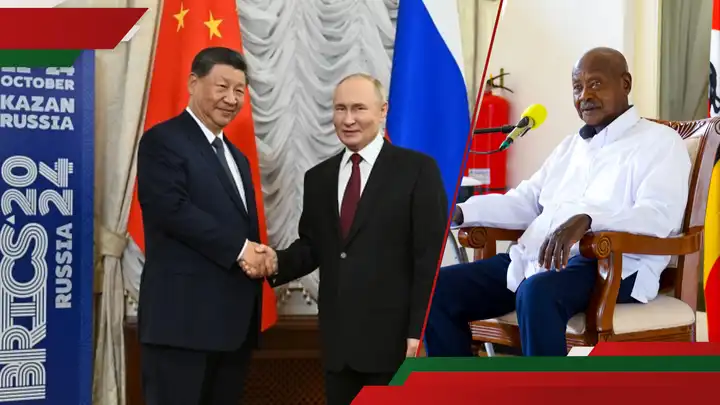
Uganda Becomes First East African Nation to Join BRICS
Charles Muchoki | Africa Guardian
Uganda has officially become a partner in BRICS (Brazil, Russia, India, China, and South Africa), marking a pivotal step in the country’s international trade and investment strategy. As one of 13 new members, Uganda’s inclusion reflects Africa’s growing influence in global economic alliances and signals a significant shift in its geopolitical priorities.
By aligning with BRICS, Uganda seeks to strengthen economic ties with some of the world’s largest emerging markets and capitalize on the alliance’s push for alternative trade and financial systems. This expansion also supports BRICS’ broader goal of reducing reliance on Western-dominated institutions and fostering a more equitable global economic order.
Strategic Timing Amid Shifting Alliances
Uganda’s decision to join BRICS comes amid strained relations with Western nations, partly due to disagreements over Uganda’s policies on LGBTQ rights. This new partnership provides an opportunity for Uganda to diversify its alliances and enhance multilateral cooperation. Other nations joining BRICS include Algeria, Indonesia, Turkey, Nigeria, and Vietnam, reflecting the bloc’s ambitions to expand its influence globally.
Potential Economic Benefits for Uganda
As a BRICS member, Uganda stands to benefit from diversified trade relationships and access to vast markets within the alliance. With an economy largely reliant on agriculture and natural resources, the country could see increased investment and trade in key sectors such as oil, minerals, coffee, and tea.
Membership also opens doors to alternative funding through mechanisms like the New Development Bank, offering opportunities to collaborate on infrastructure development, digital transformation, and energy projects. These partnerships align with Uganda’s strategy to reduce dependence on traditional Western markets in favor of more equitable, mutually beneficial arrangements.
Africa’s Growing Role in Global Alliances
Uganda’s inclusion in BRICS underscores Africa’s rising significance in shaping global economic dynamics. Previously, South Africa was the bloc’s sole African member. However, with the 2023 expansion, Egypt and Ethiopia joined, followed now by Algeria, Nigeria, and Uganda.
This shift highlights Africa’s growing prominence in global trade and investment discussions and reinforces BRICS’ ambition to serve as a counterbalance to Western-led economic structures. Uganda’s membership signals its readiness to embrace a more prominent role on the world stage, leveraging partnerships that align with its national interests.
___
